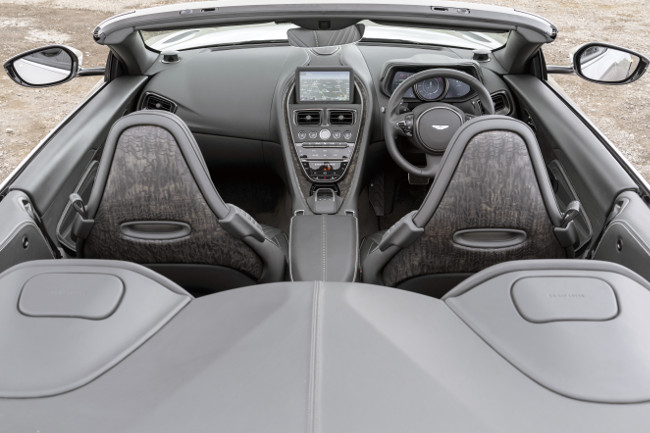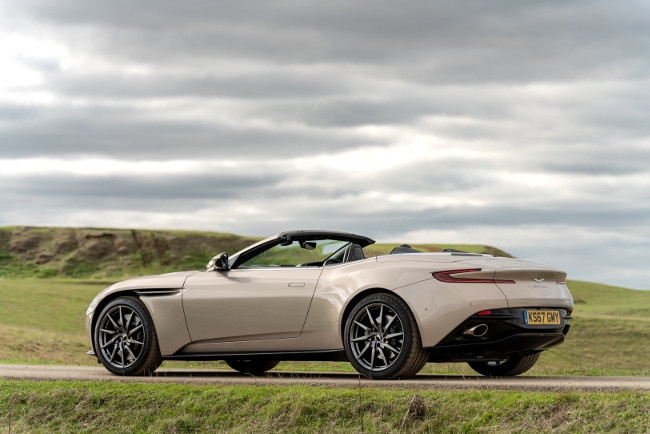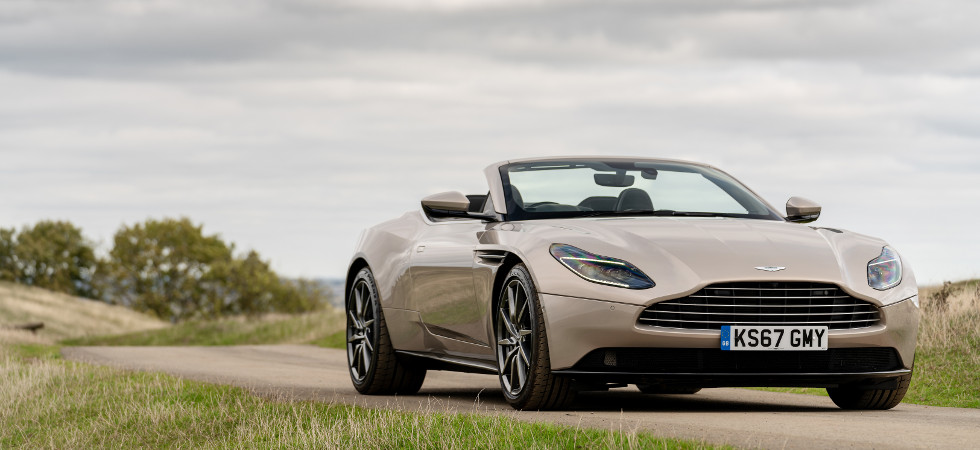Words by leading motoring journalist Mark Gallivan
It’s unfair to level all the credit for Aston Martin Lagonda’s regeneration down one person. But neither too is it unreasonable to suggest that before the current CEO Andy Palmer arrived at the company back in 2014 it lacked a forensic purpose. Now, four years on its abundantly clear that Aston Martin Lagonda’s Second Century Plan is in full swing. Fresh from this month’s Stock Market debut where the 105 years old company sold around 25% of its shares for £4bn – lower than the expected £5bn with a share price that failed to ignite the market in a way that was hoped – it remains a remarkable turnaround for a company that went bankrupt seven times before.

Far more than a timely flotation this move by the Gaydon headquartered company is as a test of the pre-Brexit sentiment. Particularly, as the UK accounts for 30% of global sales with the EU, Asia-Pacific and the United States snapping up the remaining production. What’s notable as I’m standing in a car park in Blanchland, nestled in the North Pennines are the cars we are about to drive all happen to be new generation models with chassis, interior and electronic realisation that finally takes on the global best in this – the most partisan of luxury markets. 2018 has seen the delivery of the first phase of the plan. This includes delivery of the Vantage sports car, the DB11 – in Coupe and Volante specification and DBS Superleggera. While that would satisfy most CEO’s after four short years of stewardship, Palmer has already committed to the new St. Athan in south Wales which will create new jobs but crucially see the delivery of the forthcoming Rapide E and the production of the firm’s first SUV.

In rude health, revenues have risen by 8 per cent to £445m in the first half of 2018, while pre-tax profits rose 2.5 per cent to £20.8m. Last year the company produced around 6,400 cars in 2017 and this is set to increase to a target of 14,000 units once St. Athan site is up to full production. I’m told that the halo Valkyrie hypercar will provide solid opportunities to work with alternative propulsion generation and a mid-engined configuration.

Yet, I’m here with the Aston Martin team (having tested the brilliant new Vantage in Luxury Lifestyle Magazine last month) waiting to drive the DB11 Volante that’s billed as Aston Martin’s most iconic GT with a twist – a folding canvas roof. Powered by a single scroll 4.0-litre twin turbo V8 producing 503bhp with a 0-62mph time in 4.1 seconds and onwards to 187mph my test was over some spectacular roads that snaked out of Blanchland and up and over blind summits which resembled the best that Alton Towers could throw at paying customers they skirted the Scottish border and back down again into roads that carved through quite villages.

It’s at the coffee break that I change from the Vantage and into the DB11 Volante. Straight away one thing is clear the DB 11 Volante feels far larger than the smaller and tightly focused Vantage. With the roof down you’re acutely aware of the car’s 1,940mm girth – a full 38mm wider than a BMW 7 Series – as the exposed front wing and rear haunches streak past jagged rocks, over blind crests with the crackling overrun from the exhausts. To make a mistake, even the slightest misjudgment here would be a disaster so I settle back a little and let my fellow journalist roar off ahead in the Vantage until, eventually, he’s long out of site.
You can own your own DB11 Volante for £159,900 with no extras but a few things might stop you in your tracks. Firstly, the new Vantage is so good, so convincing, that from £120,900 it is my standout newly launched luxury sports car for 2018.

Granted, you will be restricted to two seats but plausibly the DB11 Volante only has space for occasional adults. In the end, it is a tale of two Cities. The Vantage may suit the prospective London owner better than the DB11 Volante but take yourself off down to Lyon and you’ll be kicking yourself you didn’t choose the DB11 Volante when the spring sunshine comes around. Be assured that Aston Martin now has world competing products for a world stage with a definite plan. It was the late Victor Gauntlett who served as the firm’s Chairman back in the 1980’s that quipped when asked how to make a small fortune from the company. “Start with a big one”, he said. Four short years do indeed make a difference.






















